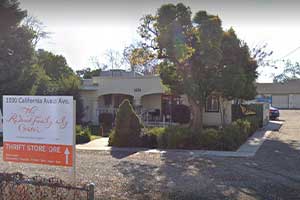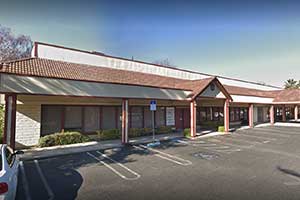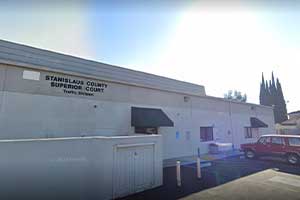Skip To Rehab Listing
That is one of the reasons the Modesto area has 37 addiction treatment facilities accessible to local residents who struggle with drug and/or alcohol abuse. These programs aid the region's population of 245,144 no matter age or circumstances in order to make effective rehab available to anyone who is looking for it.
Alcohol and Drug Rehab Program Settings and Approaches
Modesto area residents who face substance abuse problems can select from a variety of recovery settings based upon factors such as their location and specialized needs.
Recovery settings may consist of the following: outpatient detoxification programs, inpatient rehab programs, outpatient individual counseling, short term rehab facilities, long term rehab centers.
Clients can also pick from several recovery modalities meant to provide effective support for their needs: matrix model, brief intervention approach, behavior modification, trauma therapy, 12-step facilitation approach, relapse prevention.
Special Programs for Addiction Treatment
Drug and alcohol addiction is not the same for everyone, so treatment should also be varied. That is why alcohol and drug treatment programs in the Modesto area offer a number of specialized programs designed to provide a customized method to treatment for patients. These special programs include the following: clients referred from the court/judicial system, treatment for spanish-speaking clients, persons with serious mental illness, programs for the hearing impaired, child care for clients children, social skills development.
Recovery Payment Options
Clients often avoid treatment because of worries about payment. However, addiction treatment centers make a range of payment alternatives available to clients in order to help with their economic needs and improve opportunities for recovery. Some of these options are included here: cash or self-payment, private insurance, military insurance, sliding fee scale, other state funds, state welfare or child and family services funds.
Alcohol and drug addiction rehabilitation is accessible for Modesto, California residents through many different programs, methods, and financing alternatives that put lasting recovery within reach.
Commonly Asked Questions about Addiction and Treatment
How can a homeless person get help for substance abuse?
For homeless individuals struggling with substance abuse, accessing help can be particularly challenging due to factors such as limited resources, absence of stable housing, and potential co-occurring mental health disorders. However, there are a number of avenues that a homeless person can explore to get help:
Government Programs: Many cities have government-funded programs that provide services for homeless individuals, including substance abuse treatment. These may include detoxification, outpatient counseling, residential treatment, and medication-assisted treatment. The U.S. Department of Housing and Urban Development (HUD) and the Substance Abuse and Mental Health Services Administration (SAMHSA) are two significant sources of such assistance.
Community Health Clinics: Community health clinics often offer a range of services, including substance abuse treatment, on a sliding scale based on income. These clinics also frequently provide referrals to other necessary services.
Nonprofit Organizations: Many nonprofit organizations offer resources and support for homeless individuals struggling with substance abuse. These may include recovery support groups, transitional housing, job training programs, and other services.
Outreach Programs: Outreach programs are designed to connect with individuals who may not seek help on their own. Outreach workers may go to places where homeless individuals congregate to provide resources and assistance.
Housing First Programs: These programs, which prioritize providing individuals with stable housing without requiring sobriety or participation in treatment first, have been shown to be effective in helping people maintain recovery and improve their quality of life.
Emergency Departments and Hospitals: In a crisis, emergency medical personnel can provide immediate assistance and connect individuals with longer-term substance abuse treatment resources.
Veterans Services: If the individual is a veteran, the U.S. Department of Veterans Affairs offers many services, including substance abuse treatment, mental health services, and housing assistance.
What can I do to help someone addicted to drugs?
Learn about addiction: Educate yourself on drug addiction, its causes, symptoms, and treatment options. This knowledge will help you better understand the person's struggles and provide informed support.
-
Approach with empathy: Start a conversation with the person about their drug use in a non-judgmental and empathetic manner. Express your concerns for their well-being and the impact of their drug use on their life.
-
Encourage professional help: Encourage the person to seek professional assistance from a medical professional, therapist, or addiction counselor. Offer to help them find suitable resources and provide support as they take steps towards treatment.
-
Offer emotional support: Be available to listen and provide emotional support throughout the recovery process. Maintain open communication and offer a safe space for the individual to share their experiences and feelings.
-
Suggest support groups: Recommend joining support groups such as Narcotics Anonymous (NA) or SMART Recovery, which provide a community of individuals with similar experiences and offer guidance and encouragement throughout the recovery process.
-
Set boundaries: Establish clear boundaries to protect your own well-being and communicate your expectations about the person's behavior. Be firm yet compassionate, making it clear that you will not enable their drug use.
-
Assist with lifestyle changes: Help the person develop healthier habits, such as engaging in physical activity, improving their diet, and finding alternative ways to manage stress. Offer to participate in these activities together to provide additional support and motivation.
-
Be patient: Recovery from drug addiction is a long-term process, and relapses may occur. Understand that setbacks are part of the journey, and continue to offer support and encouragement as the person works towards sobriety.
-
Care for yourself: Supporting someone with drug addiction can be emotionally taxing. Ensure you are taking care of your own mental and emotional health by seeking support from friends, family, or professional counselors if needed.
What you should do and how to cope if you are living with an addict?
Living with an individual struggling with addiction can be challenging and emotionally taxing. It's essential to find effective strategies to cope with this situation, protect your own well-being, and potentially influence your loved one towards recovery. Here are some strategies:
- Educate Yourself: Understand that addiction is a disease, not a choice or moral failing. Learn about the specifics of the addiction, its effects, and treatment options. This knowledge can help you better empathize with your loved one and give you an idea of what they're facing.
- Set Boundaries: Establish boundaries that protect your mental, emotional, and physical health. This could involve rules around drug use in the house, or not covering for the addict's responsibilities. Be firm in maintaining these boundaries.
- Avoid Enabling: While it can be difficult to watch a loved one suffer, avoid actions that enable their addiction, such as providing money that may be used on drugs or alcohol, or making excuses for their behavior.
- Communicate Openly and Honestly: Express your concerns without blame or judgment. Use "I" statements to express how their behavior affects you and others in the house.
- Encourage and Support Treatment: Encourage them to seek professional help. Show support for their efforts to engage in treatment and maintain recovery.
- Take Care of Yourself: It's crucial to look after your own health too. Make time for activities you enjoy, maintain a healthy lifestyle, and seek support when needed. You cannot pour from an empty cup, so ensure you're well-equipped mentally and physically to cope with the situation.
- Seek Support: Consider joining a support group for families and friends of individuals with addiction, such as Al-Anon or Nar-Anon. These groups can provide a community of people who understand your experiences and can provide advice, support, and a safe space to share your feelings.
- Consider Professional Guidance: If the situation becomes unmanageable or you're unsure how to proceed, seek help from a counselor or therapist familiar with addiction. In extreme cases, a professional intervention may be necessary.























